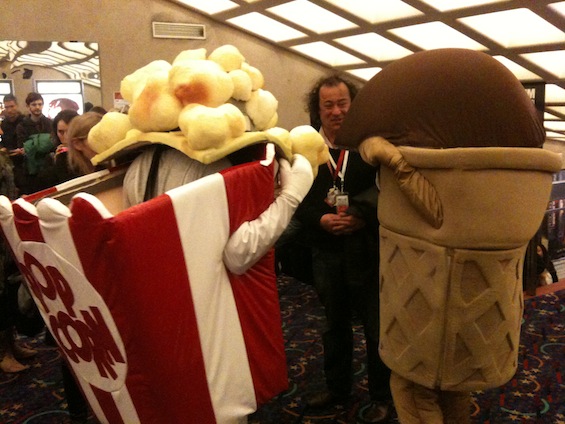LATAURO DOES MIFF #4: Orange Groves, Considine Rapping, and Voids Entered!
The Event: The 2010 Melbourne International Film Festival
The Protagonist: Latauro (AICN-Downunder)
The Mission: To see as many films as possible over a two-and-a-half week period, everything with a vaguely-interesting premise or promising director. The best and worst are filtered down to you so you can seek out the greats and avoid the ingrates.
Today's Lesson: The advertising for MIFF is always something we anticipate with a certain hesitation. In some respects, it's more important than the films. If you see a bad film, you can move on to something else, but every single session you see will have the same exact ads before them, and if you're seeing as many films as I am, this is an important issue. The previous years offered us some wonderfully dodgy material in the form of the "Rush" ads (the Australian cop show), or the Yalumba wine ads with their warbling soundtrack. This year, the ads are not better, but they do look cheaper. There's an embarrassingly scattershot ad for the Sofitel Hotel, which is so obviously filled with downloaded pictures, I keep mistaking it as an ad for Getty Images. There's a truly terrible Turn Your Phones Off ad made by the State Government (which, like the Sofitel ad, doesn't appear to be available online) featuring a fake film critic talking about road safety. It's not really funny, not really clever, and most people seem to be confused by the ad's central message. (And hey, I've had some experience with Turn Your Phones Off ads.) Then there's the MIFF promo itself. This year's catchphrase is "It's a Matter of Taste", replacing the dire "Everyone's a Critic" from the past two years. "It's a Matter of Taste", superimposed over ominous storm clouds, still feels a little pretentious. The ad, however, is better than any they've had in some time. A Popcorn Bucket and Choc-Top fight in an alleyway as a voice over compares Cameron to Bigelow, Allen to Fellini, etc. Although I'm always a tad uncomfortable at any promotions that suggest going to MIFF is a part of some OCD desire to rank things against each other, the ad has held up to many repeat viewings, so I'm at least glad for that. And the music is very well done. I'm yet to see an ad campaign for MIFF that captures the whole point of going -- ie: enjoying amazing films you'd otherwise never get to see -- I consider this a small step in the right direction.

